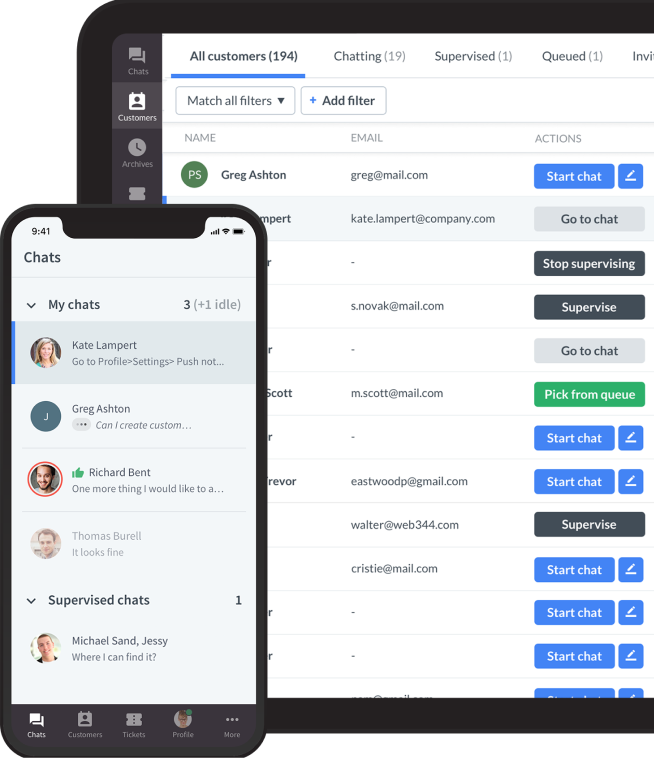
Are you aiming for a job in customer service or hoping to level up your career? If so, the skills you bring to the table can make all the difference in landing your dream role — and thriving once you're hired.
But you need to be aware that good customer service isn't just about picking up calls or typing out responses — it's about making meaningful connections with customers and being part of a team that has each other's backs.
Employers want people who can handle issues quickly, explain things clearly, and make the most of tech tools to help customers. To catch their eye during the hiring process, you need to promote your customer service skills in a way that proves you're up for the challenge.
Not sure what skills to list on your resume for customer service roles?
I can help you with that. Customer service jobs vary widely depending on the sector, but many essential skills overlap.
In this guide, I'll explain the key customer service skills employers value the most, focusing on how to describe them on your resume to make a strong impression.
Types of customer service skills to highlight in different roles
Depending on your role, different skills and approaches will stand out on your resume. By playing to your strengths and focusing on what the job really needs, you can make a bigger impact on hiring managers.
Let’s break it down with some examples:
Suppose you're applying for a service agent position in a bank. In that case, you should focus on showing off your attention to detail, knowledge of regulations, and ability to connect with customers. In your resume, you might list accomplishments like "Processed over 50 customer transactions a day with 99% accuracy and no compliance issues," highlighting your reliability.
If you're aiming for a customer service professional job in an IT company, emphasize your tech know-how, troubleshooting chops, and ability to teach customers. On your resume, you could include achievements like "Resolved Tier 1 and Tier 2 support tickets using CRM tools, cutting average response time by 40%."

For the sales customer team, describe how you build strong client relationships and hit your goals. You could add the following point to your resume in the achievement section: "Boosted monthly sales by 20% using in-depth product knowledge and proactive, friendly communication with clients."
At the same time, when you're putting your resume together for a customer service role, it's also important to highlight the skills that match how you'll communicate on the job. What do I mean by that? Call center reps should emphasize their verbal communication and active listening abilities on their resumes. In contrast, chat reps need to mention strong writing skills and the ability to juggle multiple conversations.
Let’s talk about it in detail one by one:
Call center roles
These roles require exceptional verbal communication and problem-solving skills to handle high volumes of calls. Employers value your ability to de-escalate tense situations and stay calm under pressure. Show multitasking abilities by mentioning your experience with call scripts, ticketing systems, or performance-tracking tools. If you worked with specific software or exceeded call resolution targets, highlight that in your resume to show expertise.
Good resume example:
"Provided step-by-step support for technical issues, maintaining an average handle time of under 5 minutes."
This shows that you provide fast, practical support and keep handling times down, which is a big deal in call centers. It also shows you can break down complex issues into simple, easy-to-follow steps.
Live chat roles
Written communication is king in live chat support. You'll need strong typing skills, clarity in your responses, and the ability to convey empathy and friendliness through text alone. Highlight your ability to manage multiple conversations simultaneously without sacrificing quality. Mention proficiency with chat macros, shortcuts, and typing speed can set you apart.
Good resume example:
"Responded to an average of 10 live chat inquiries at once with a 95% satisfaction rating, using canned responses and personalized messages to resolve common issues efficiently."
This shows you can juggle multiple conversations at once (up to 10) while keeping a high satisfaction rate (95%). It also shows you know how to work fast using canned responses while still adding a personal touch to provide great customer service.
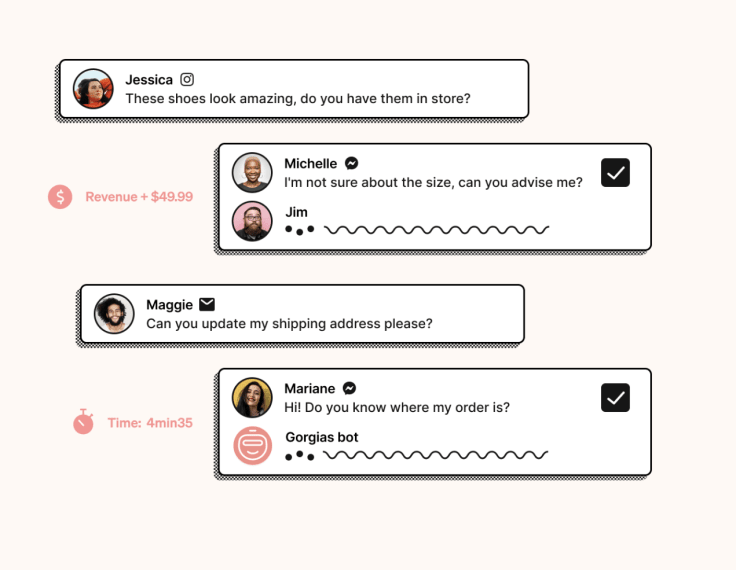
Hybrid roles
Customer service agents in these roles require adaptability to switch between calls, chats, and emails throughout the day. You should mention how you can adapt quickly while keeping your communication top-notch. Time management and flexibility go without saying, as does the ability to handle multiple inquiries.
Good resume example:
"Managed 50+ customer interactions daily across phone, email, and chat support channels, maintaining consistent service levels and resolving issues within SLA timelines."
This shows you can handle a high volume of interactions across different channels while meeting service goals, proving you’re good at managing your time and staying flexible. Mentioning SLA timelines gives a clear example of your reliability.
Foundational soft skills for customer service reps
Before adding customer service skills to your resume, make sure you know which ones matter and what they mean.
I'll start with soft skills because they are the powerhouse of good customer service. These interpersonal abilities help you connect with clients, de-escalate tricky situations, and create a positive customer experience — even when conversations get tough.
They also show your ability to bring empathy and understanding into every conversation. If you can master these, you'll excel at customer interactions and be the teammate everyone relies on.
Empathy
Empathy is putting yourself in the customer's shoes and understanding their perspective. It isn't just about feeling bad for someone — it's about showing that you're listening and caring about their experience. For example, in a live chat role, you might respond to a delayed shipping inquiry with phrases like "I understand how frustrating it can be when a package takes longer than expected. Let me make this right for you."
Active listening
One important customer service skill is focusing completely on what the customer is saying and responding thoughtfully. This means repeating key points to confirm your understanding of their concern, avoiding interruptions, and asking follow-up questions that show you're engaged.
LiveChat allows agents to pay close attention to customers' concerns and respond thoughtfully, showing that they truly understand and care.
Adaptability
Stay calm and adjust your approach when things don't go as expected. This might mean troubleshooting a technical error live or switching communication styles to match the tone of an upset or hurried customer.
Patience
Agents can easily switch between different communication channels within LiveChat, adapting to customer preferences seamlessly.
Remaining calm and professional, even when dealing with a frustrated customer, can make all the difference. When a customer blows off steam, patience and a friendly tone will go a long way in keeping the conversation productive rather than acrimonious.
LiveChat supports concise and coherent messaging, helping agents to convey information accurately and avoid misunderstandings.
Teamwork
Being someone your team can rely on, especially when working in busy environments like call centers. Sharing insights from tricky cases and asking for help when needed makes the whole customer service team stronger.
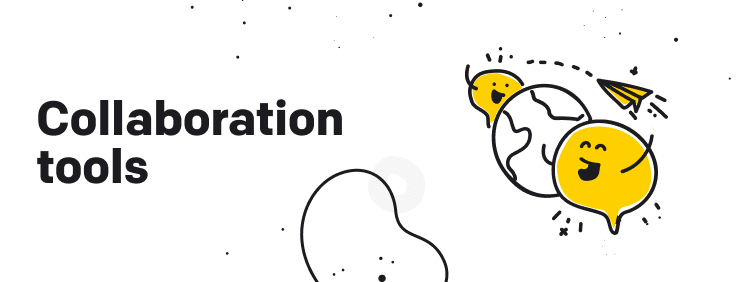
Now that we’ve covered the core soft skills that make customer service reps stand out, let’s bring it all together. The table below highlights the most essential customer service skills, explains what each one means, and shows how they directly benefit customer interactions and service quality.
| Skill type | Description | Benefit |
|---|---|---|
| Empathy | Understanding the customerâs feelings and perspective, and responding with care. | Builds emotional connection, helps calm frustrated customers, and personalizes the interaction. |
| Active listening | Fully focusing on what the customer says, confirming understanding, and asking relevant questions. | Ensures accurate responses, reduces misunderstandings, and improves customer trust. |
| Adaptability | Adjusting your communication style or workflow based on customer behavior or unexpected issues. | Enhances flexibility and keeps interactions smooth under pressure. |
| Patience | Staying calm and composed during stressful or slow interactions. | Prevents escalation, especially when dealing with upset or confused customers. |
| Teamwork | Collaborating with colleagues, sharing insights, and supporting team goals. | Improves overall team efficiency and allows for faster issue resolution. |
| Problem-solving | Identifying issues, thinking critically, and applying creative solutions within policy. | Increases customer satisfaction by resolving complex problems efficiently. |
| Prioritization | Determining which customer requests are most urgent and acting accordingly. | Maintains service quality during busy periods and ensures timely resolution of critical issues. |
| Clear communication | Explaining issues or solutions clearly in verbal or written form without jargon. | Helps customers understand and trust the service, reducing confusion. |
| Tone of voice | Using a friendly, calm, and professional tone to match the customer's mood and situation. | De-escalates tension and creates a positive experience even in difficult situations. |
| Written communication | Crafting clear, grammatically correct, and personalized responses in chat and email. | Keeps conversations efficient and professional, especially in multi-chat or asynchronous formats. |
| Verbal communication | Speaking clearly, listening actively, and maintaining professionalism during calls. | Reduces miscommunication and enhances the customerâs sense of being heard and helped. |
| Time management | Handling tasks efficiently using tools like macros, canned responses, or ticket prioritization. | Boosts productivity and ensures timely resolution, especially during high volume periods. |
| Workflow tools proficiency | Using CRM, chat, or help desk software effectively (e.g., LiveChat, Zendesk, Salesforce). | Speeds up response time and improves consistency and quality of service. |
| Emotional intelligence (EQ) | Regulating emotions, staying composed, and using strategies to manage stress. | Maintains professionalism during tense conversations and prevents burnout. |
| Empathy in action | Applying empathy practically â using thoughtful language, checking in during interactions, and offering sincere follow-ups. | Increases customer satisfaction and builds long-term loyalty. |
| Technical knowledge | Knowing the product or service inside out and explaining features or troubleshooting steps clearly. | Enables quicker resolution and builds customer confidence in the companyâs expertise. |
| Commitment to growth | Demonstrating continual learning through training, certifications, or product-specific knowledge. | Shows initiative and readiness to adapt to evolving tools and expectations. |
Problem-solving and critical thinking skills
Handling difficult situations is a core part of any customer service role, and that's where problem-solving and critical-thinking skills come in. These strong customer service skills allow you to approach challenges logically and calmly so you can find solutions that improve customer satisfaction and keep the team running smoothly.
Identifying the root cause
Forget about simply addressing the immediate issue — dig deeper to discover what's causing the problem to help prevent it from happening again. For example, if a customer reports recurring technical issues, you might investigate patterns rather than offering a quick fix. This process shows you're proactive and thorough, qualities that managers value.
Creative solutions
Sometimes, standard procedures don't fit the problem. This is where thinking outside the box helps. Companies love candidates who can offer alternative solutions while staying within company policies. For example, suggesting a temporary workaround while an engineering team fixes the bug is a sign of initiative.
De-escalation techniques
Calming down a frustrated customer requires empathy and strategy. Techniques like acknowledging their feelings, offering a sincere apology, and presenting actionable next steps can turn a negative experience into a positive one.
Prioritization
When you're juggling multiple customer issues at once, it's important to know how to prioritize. Addressing the most urgent requests first can make a big difference. It helps you stay on top of things and keeps customers satisfied. To strengthen this point, mention any experience with prioritization tools or ticketing software.
Collaboration during problem-solving
Some issues require team input. Showing that you know when to loop in others and how to delegate tasks illustrates critical thinking and teamwork — two key skills needed for customer service.
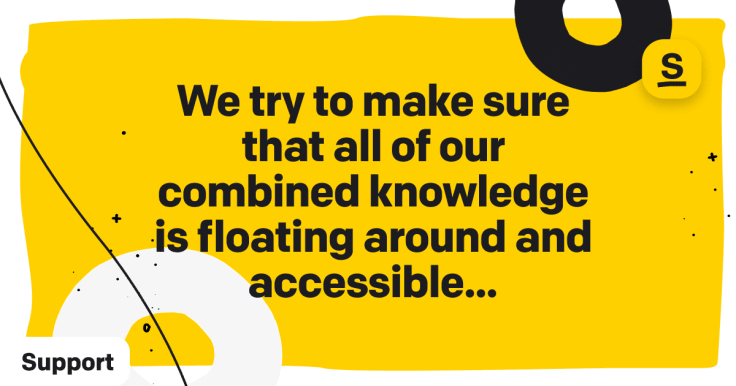
Clear communication skills
Let’s move on to the communication area. Mastering communication in customer service is about solving problems and building rapport with customers. Whether you're speaking to someone over the phone, typing responses in a live chat, or emailing a follow-up, the way you communicate can either build trust or leave a customer feeling unsure.
Let's take a closer look at the communication skills for customer service representatives:
| Skill | Description and example |
| Clarity | Customers appreciate clear, easy-to-understand language. Avoid jargon, and break down complex information into simple steps. For example, instead of saying, âWeâre experiencing latency issues,â try âThe system is running a bit slower right now, but Iâm here to help you as quickly as possible.â |
| Tone of voice | Your tone sets the emotional temperature of the conversation. A friendly and professional tone can calm an angry customer, while a warm, upbeat tone can make simple interactions pleasant and memorable. |
| Empathy in communication | Phrases like âI understand how you feelâ and âLetâs work together to get this resolvedâ show that youâre on the customerâs side. Empathy makes conversations feel more human and collaborative. |
| Written communication | In live chat and email roles, your words alone carry the conversation. Make your writing concise, friendly, and free of typos. When multitasking between multiple chats, stay focused and ensure each response addresses the customer's concerns. |
| Verbal communication | In call center roles, your voice matters as much as your words. Speak slowly when explaining complicated steps, avoid interrupting, and use active listening cues like âI seeâ and âThat makes sense.â |
Organizational and time management skills
One of the skills required for customer service is effective organization and time management. They don’t just help you handle a busy workload — they also reduce stress and help you deliver exceptional customer service overall.
Emphasizing these skills in your resume, with metrics when possible, shows employers that you are reliable and resourceful, even during peak times.
Prioritization
Handling multiple requests simultaneously, especially during busy periods or in a call center environment, requires knowing which tasks need your attention first. Start by identifying urgent versus low-priority requests and using tools like ticketing systems to flag items accordingly.
For example, you might prioritize customer outages over general product questions. Having a system in place prevents backlogs and allows you to respond confidently, even during high-demand periods.
Good resume examples:
"Prioritized callbacks for technical escalations during peak hours to keep high-priority customers informed."
“Managed a queue of over 200 daily tickets during seasonal peak times by categorizing requests into time-sensitive and non-critical, maintaining an average first-response time of under 10 minutes."
Handling multiple chats simultaneously teaches agents to stay patient and composed, even in stressful situations.
Time efficiency
Streamlining your tasks using customer support software, such as ticketing systems and response templates, is key to staying on top of your workload. Efficiency isn't only about rushing but also about making the best use of your tools and workflows.
For example, if you have experience with these tools, you can mention how using pre-saved canned responses helped you handle FAQs efficiently, while quick commands in the live chat software you used saved valuable minutes in each conversation.
Good resume examples:
“Improved internal communication by setting up workflow automation that reduced manual tasks by 40%, leading to faster follow-ups.”
“Increased ticket handling speed by 25% using pre-set responses and automation in LiveChat.”
Workflow tools
Familiarity with productivity tools, chat macros, or help desk software shows your technical knowledge and ability to integrate quickly into a structured workflow. Mention your comfort with dashboards that track case progress, features like SLA timers, and automation tools that help streamline repetitive tasks.
You can share instances where you optimized workflows for better efficiency, such as creating custom chat macros or setting up priority queues.
Good resume example:
“Improved resolution time by 15% after setting up automated task reminders within Salesforce, ensuring follow-ups were completed on time.”
Emotional intelligence in high-stress situations
Let’s face it — working in customer service means dealing with tough situations.
How you handle stressful interactions can make or break the experience for you and the customer. That’s why emotional intelligence (EQ) is one of the most valuable skills you can bring to the table.
Instead of reacting emotionally, great customer service agents pause, breathe, and approach conversations with understanding and confidence. The truth is that companies appreciate candidates who have emotional intelligence, making this a standout skill in customer service recruitment.
Here’s a breakdown of EQ abilities that help you stay calm and professional and are good skills to put on your resume for customer service.
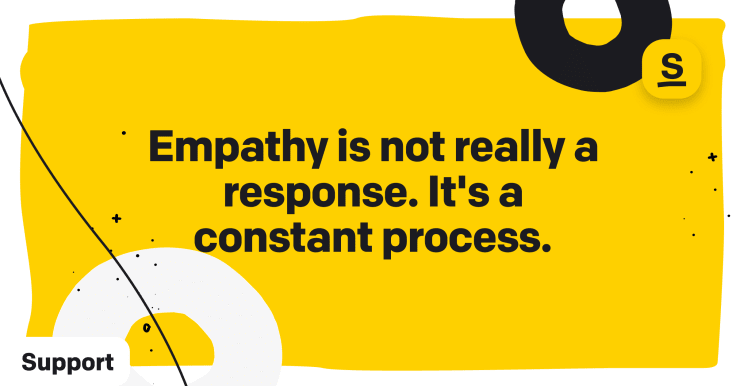
Self-regulate
Staying composed during emotionally charged conversations is crucial to maintaining professionalism. Use calming strategies like mentally reframing the situation to see things from a problem-solving perspective and pausing before responding to avoid a knee-jerk reaction.
When customers vent, remember that their frustration isn’t personal — it's about the issue they’re facing.
Visualizing yourself guiding the conversation to a resolution can also help keep you grounded.
Good resume examples:
“During a high-pressure escalation call, I kept my tone calm, acknowledged the frustration, and broke down the solution step-by-step, checking in with the customer throughout to ensure they felt reassured.”
"In one instance, I calmly navigated a multi-step troubleshooting process over the phone despite the customer’s urgency, using active pauses to explain each step clearly and confirm understanding.”
Empathy vs. burnout
Balancing emotional investment with self-care is crucial in high-volume environments like call centers.
Empathy helps you connect with customers, but too much emotional involvement without boundaries can lead to burnout. Recognize when you need short breaks to recharge and implement healthy boundaries, such as reminding yourself that you’re doing your best within the role’s scope.
Longer shifts or handling customer frustrations can quickly become overwhelming if self-care isn’t prioritized. Take small actions like pausing for deep breaths between conversations, using positive self-talk, or even stepping away for a brief reset when appropriate.
Another strategy could be using scheduled mini-breaks or mindfulness apps during long shifts to maintain mental resilience.
Good resume example:
“During peak hours, I took brief 1-2 minute mental resets after handling emotional conversations to avoid exhaustion and stay fresh for the next call.”
Empathy in action
Showing empathy leads to a positive customer experience. It also means personalizing your approach based on the customer's situation. Rather than relying on generic responses, focus on making the customer feel understood. When clients feel heard, they’re more likely to stay involved and work with you to find a solution. That's what excellent customer service really means.
Show customers you’re on their side. It's as simple as that. Instead of a generic “I understand,” opt for something specific like “I can see how that delay would be frustrating — let me help make this right.”
Good resume examples:
“A customer reached out frustrated about an error. I reassured them by walking through the fix together, using clear steps, and checking in to ensure they felt confident, and I followed up afterward to confirm the issue was resolved.”
“When a customer voiced their concern about a delayed shipment, I acknowledged their worry and explained the updated timeline clearly while offering alternative solutions to minimize inconvenience.”
“During a service outage, I updated the customer frequently with new information and provided a step-by-step workaround until full service was restored.”
Technical and product knowledge
Last but not least, when you're updating your resume, showing off your technical knowledge can help you stand out. Companies want candidates who can communicate well and know how to use the right tools and info to solve customer issues quickly.
Think about the platforms and software you’ve worked with, and be ready to describe how you used them to improve efficiency or customer satisfaction.
Here you'll find examples of good customer service skills to use in your resume:
| Skill/Focus area | Examples | Key takeaway |
| Familiarity with tools | - Used LiveChatâs shortcut features to handle FAQs quickly while personalizing interactions to boost customer satisfaction. - Handled up to 50 simultaneous tickets in Zendesk, maintaining accuracy and documenting each case for cross-department reference. | Show how you can use ticketing systems, chat platforms, and CRMs like LiveChat, Salesforce, or Zendesk to improve efficiency. |
| Task efficiency | - Tracked and prioritized customer cases to ensure timely resolutions. - Used canned responses to save time while providing clear and helpful answers. | Highlight customer service skills such as your ability to multitask by tracking and prioritizing cases, using shortcuts, and running reports. |
| Product/Service knowledge | - Explained advanced product features to a hesitant customer, leading to an upgrade. - Walked a first-time customer through onboarding, ensuring they felt confident using key features. | Show that you can guide customers effectively by understanding the product and suggesting solutions that fit their needs. |
| Commitment to growth | - Completed customer service certifications from Coursera. - Participated in software-specific training programs to enhance CRM proficiency. | Mentioning completed technical knowledge training or certifications adds credibility and shows your dedication to professional growth. |
Take the next step to show your excellent customer service skills
Mastering these customer service skills will not only help you land a job — it will help you excel as part of a great team. By showing off your soft skills, technical know-how, and emotional intelligence, you let employers know you’ve got what it takes to handle the demands of today’s customer service jobs.
To up your customer service game, check out tools like LiveChat to see how advanced chat features can make your workflow more productive and customer interactions easier.

